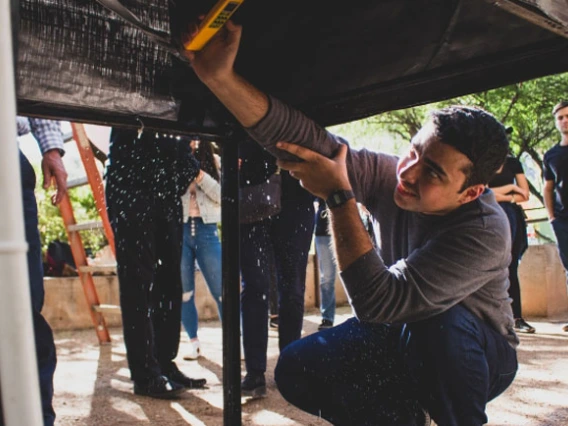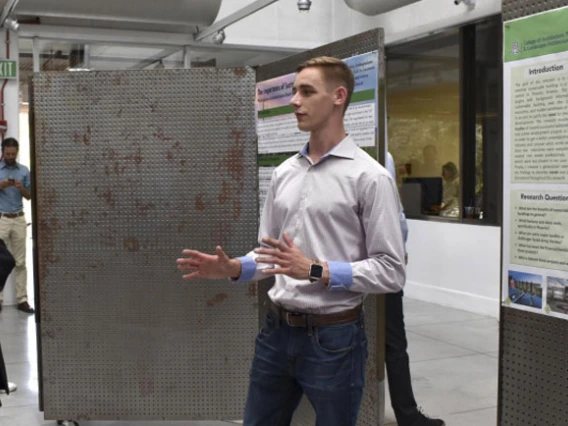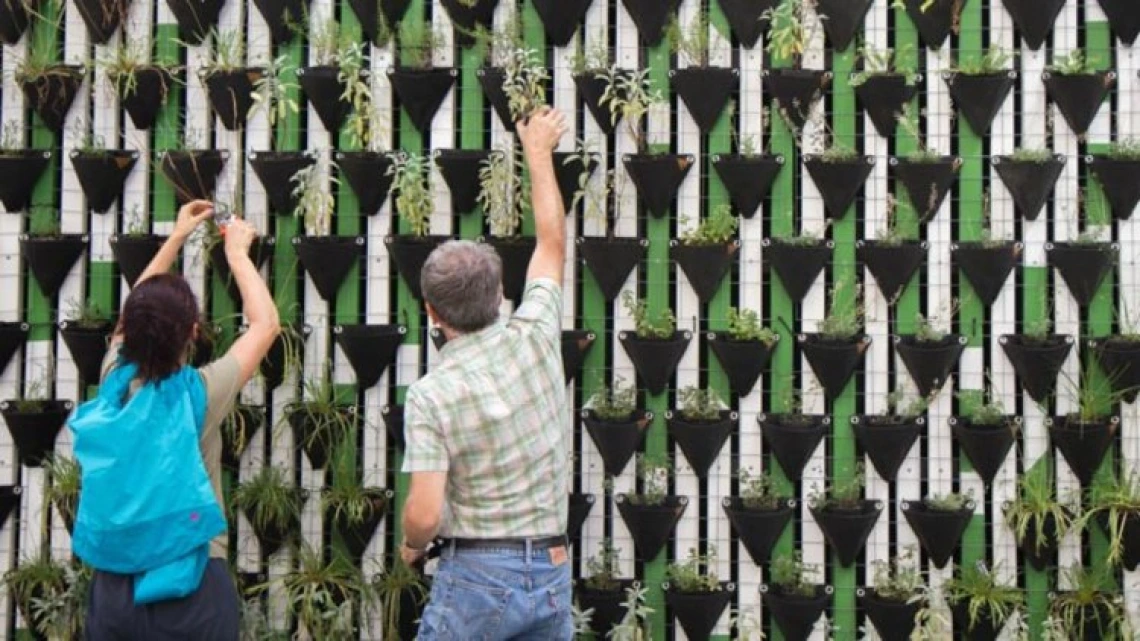Sustainable Built Environments
Bachelor of Science
Quick Facts

Top 3%
Online Bachelor's
Program in the Nation
- U.S. News & World Report, 2025
TOP 25
Public Flagship
University
- U.S. News & World Report, 2024
Students looking to enter the new green economy have an extraordinary opportunity with Sustainable Built Environments program. This solutions-based, interdisciplinary undergraduate degree provides a comprehensive understanding of sustainability principles, including environmental design, planning and management challenges.
Within this fully online program, you’ll choose an emphasis in either Sustainable Buildings or Sustainable Real Estate Development. Both emphases prepare students to answer the unprecedented challenges facing our rapidly developing world. Graduates are currently working as architectural designers, renewable energy systems designers, environmental researchers, and leaders at sustainability-focused non-profits, government agencies and corporations.
*Residents of some U.S. Territories may not be eligible. Please see our Eligibility & State Authorization page for more information.
Outcomes
Skills
Earning your Bachelor of Science in Sustainable Built Environments will build core skills, including:
- Climate adaption
- Construction management
- Design thinking
- Energy management
- Geographic information systems
- Heritage conservation
- Landscape design
- Professional communication
- Public policy
- Real estate development
- Sustainability management
- Urban design and planning
Potential Career Paths
Graduates of the BS in Sustainable Built Environments program will be prepared to pursue the following careers:
Areas of Emphasis

In the Sustainable Buildings emphasis, you’ll gain insight into the theories and techniques behind analyzing building efficiency. Topics include net-zero energy design, energy conservation, passive solar and natural ventilation, and climate response. You will also have opportunities to analyze existing and planned structures for energy efficiency and create plans to make them more efficient.
A fully online course that fosters awareness and thorough understanding of the qualitative and quantifiable environmental forces that contribute to energy use in buildings. The course introduces basics for understanding solar energy and light, climate and microclimate, and human thermal comfort as related to the built environment.
Understand the quantitative and qualitative factors that contribute to energy flows and consumption in buildings' thermal performance.
Focuses on principles of energy efficient design through investigation of buildings, divided into four categories: baseline, passive design, active design and net-zero building.
Focuses on principles of energy efficient design through investigation of buildings, divided into two categories: energy modeling and energy auditing.
An overview of the interdisciplinary paradigms, principles, programs, and players in the field of heritage conservation ranging from local to international contexts.
The objective of the course is to introduce real estate development students, and those from other majors and programs, to construction management as a component of the real estate development process. The course will introduce students to the fundamentals of building construction, project budget estimation, project management, scheduling, and project leadership. The course will focus both case analyses and discussions of best practices. Industry experts will provide insight and help guide the course substantively. The course will ask students to analyze decisions made by real estate developers about construction management and communicate clearly about construction management and its role in mitigating risk and enhancing project returns.

The Sustainable Real Estate Development emphasis prepares you for careers in responsible and sustainable development. Graduates work as community association managers, real estate brokers, construction managers, urban planners, and more. You may also pursue a Master of Real Estate Development degree; qualify for the Accelerated Master’s Program (AMP) to shorten the path to your degree.
A case-oriented approach to site selection, rezoning, financing, architectural design, economic feasibility, and other facets of the land development process.
Introduction to Real Estate is an introductory course that provides students interested in the property market introduction and exposure to its people, vocabulary, economic forces, regulatory and environmental frameworks, capital markets, and transaction processes. By the end of the course, students, via lectures, case presentations, and guest speakers, will be able to: identify, define, and utilize foundational real estate vocabulary; distinguish between forms of property description, contracts, ownership, transaction, and liability issues germane to each; identify, define, and demonstrate the role of regulation in the real estate markets; identify, describe, and discuss the factors shaping estimates of property value and methods used to generate those estimates; identify and describe factors influencing the equity and debt markets as well as the investment of both types of capital; conduct some forms of empirical analysis; and locate, describe, and evaluate various opportunities for employment in the residential and commercial real estate markets. Completion of the course will prepare students well to take state real estate sales licensing courses if they choose to pursue such a pathway.
There is an interest in assuring that real estate development of the future is more socially, environmentally, and economically responsible than in the past. Emerging research shows that responsible real estate development can produce competitive short-term and superior long-term financial returns. This introductory course will review sweeping changes occurring in real estate development.
This course provides students a review of the legal principles that inform and regulate the due diligence and entitlement process that is the basis of every successful real estate transaction.
The objective of the course is to introduce real estate development students, and those from other majors and programs, to construction management as a component of the real estate development process. The course will introduce students to the fundamentals of building construction, project budget estimation, project management, scheduling, and project leadership. The course will focus both case analyses and discussions of best practices. Industry experts will provide insight and help guide the course substantively. The course will ask students to analyze decisions made by real estate developers about construction management and communicate clearly about construction management and its role in mitigating risk and enhancing project returns.
This course will introduce students to the fundamental concepts of urban design and urban form and the role these play in placemaking in cities, towns and suburbs. The course will cover the work of urban design theorists, variables that impact a community's sense of place, challenges and opportunities in modern city design, and methods to design more livable and sustainable cities.

Customize your educational path to align perfectly with your career aspirations in the General Emphasis. Collaborate closely with your academic advisor and faculty to design a personalized curriculum that reflects your interests from Arizona Online’s vast offerings, including renewable energy systems, environmental policy, urban planning, and beyond. Our graduates are equipped for diverse careers in renewable energy, sustainability consulting, landscape design, and environmental research, to name a few. Many continue their academic journey through advanced graduate programs.
Students will work with their major advisor to select courses that align with their area of academic interest.
Benjamin White - Student Spotlight
Benjamin White, an Arizona Online student earning his bachelor's in Sustainable Built Environments, shows how multiple detours need not derail your journey toward an online degree.












